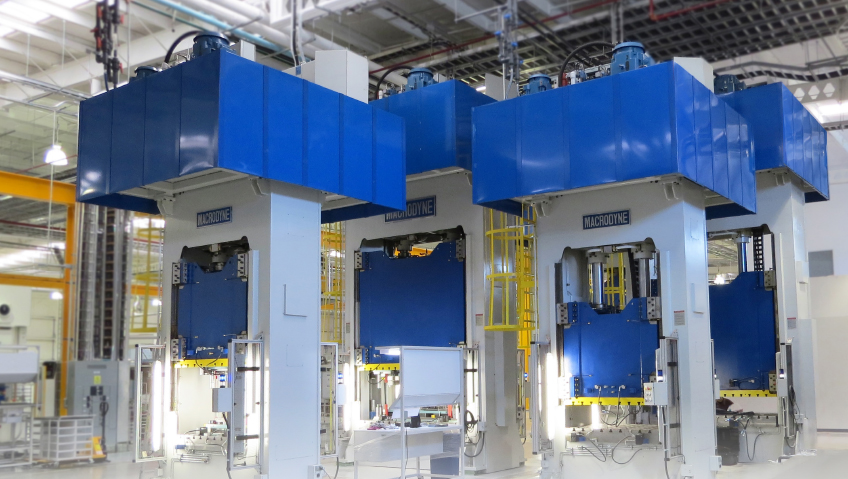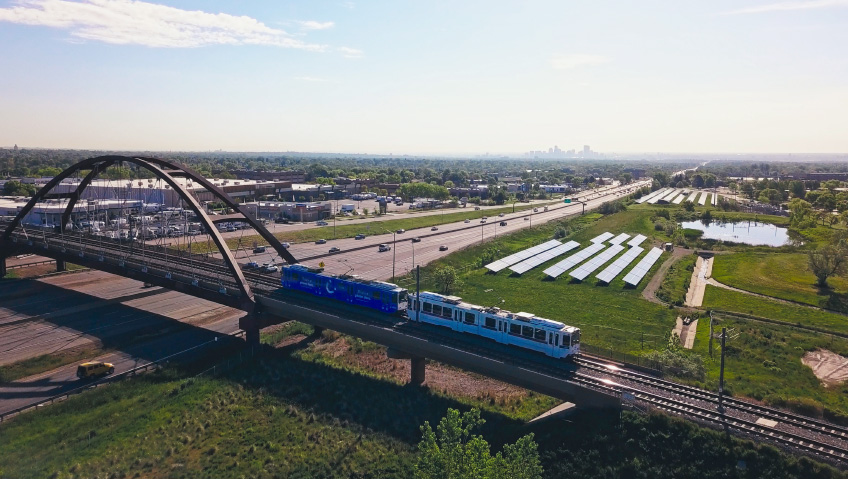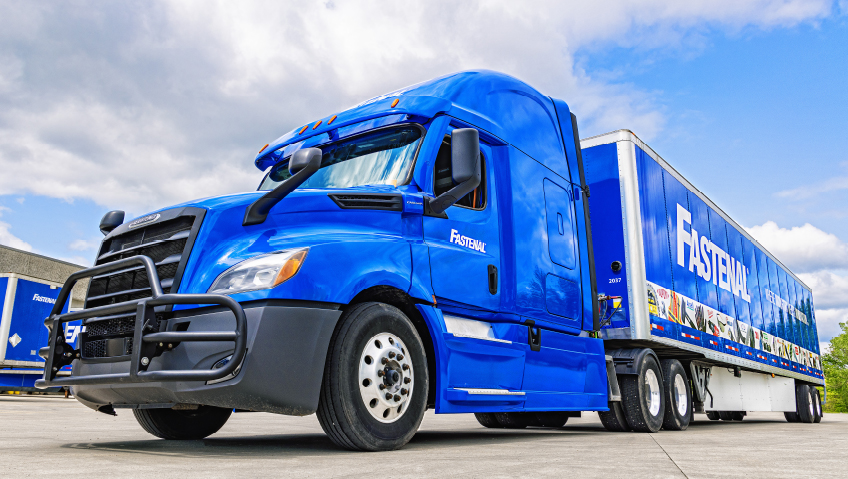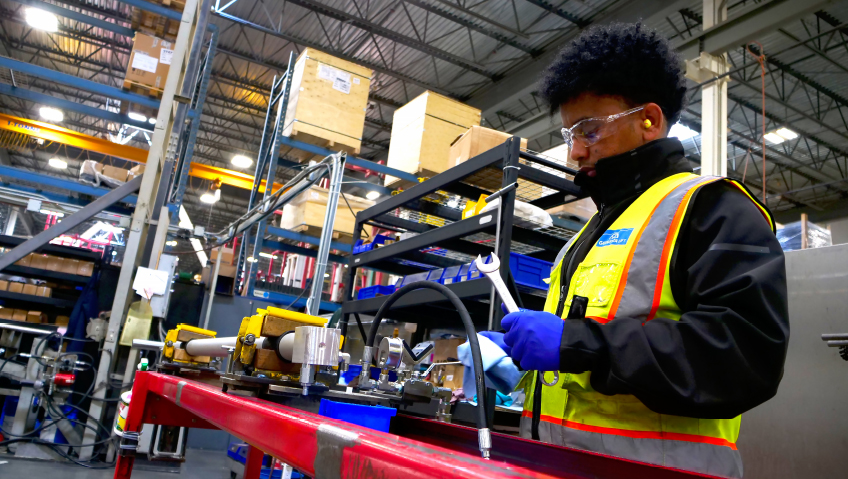Already established as North America’s largest press manufacturer, Macrodyne Technologies, an expert in direct drive servo, spindle servo, and hydraulic presses, is looking to expand its capabilities, its reputation, and its influence overseas by breaking into new markets and applications with its world-class solutions, state-of-the-art technology, and deeply rooted engineering expertise.
Macrodyne continues to invest in this capacity through both organic growth and strategic acquisition to ensure it has the capabilities to address the rapidly changing needs of industry in the wake of Industry 4.0. The company integrates technology and innovation to bridge the gap between legacy machines that are built to last and the advanced capabilities of Industry 4.0 to unlock the potential of optimized manufacturing processes for customers in North America and around the world.
A global strategy
One element that is common amongst industry leaders is the willingness to invest in internal capacity to sustain and encourage growth. This is especially true of Macrodyne, which, under its new leadership, has infused a renewed sense of energy and purpose into the company over the last five years.
As part of Macrodyne, Dunkes GmbH, a well-established German press manufacturer with a history dating back to 1960, has roots that afford it a strong reputation in the European market. Both companies are built upon sound engineering, but Macrodyne’s engineering expertise gives it the ability to customize to suit, whereas Dunkes’ solutions are more out-of-the-box, which makes the relationship between the two compatible and complementary.
According to Director of Business Development Jeffrey Walsh, the acquisition of Dunkes has afforded Macrodyne several new technologies that will give it access to new industries and sectors within which it can position itself as a leader.
As Walsh says, “We’re sharing technologies and we’re treating it as one global company while maintaining Dunkes’ brand name and all the goodwill they have. They brought some pretty unique technology to the forefront that we didn’t have.”
Macrodyne is also working on building strategic relationships in North America to strengthen its foothold in the market. The company has carefully curated joint ventures in the United States and Mexico, giving it the opportunity to have boots on the ground for its customers in the U.S. while expanding its influence south of the Mexican border.
“That allows us to manufacture in both the U.S. and Mexico, enabling us to better serve those markets because we can build more efficiently. They also do our support and installations,” explains Walsh of a model of growth that is serving Macrodyne well.
Tech-enabled growth
While Macrodyne expands its international presence, growth is also taking place closer to home. To supplement the engineering and manufacturing capabilities at its headquarters in Concord, Ontario, it added an automation operation in Kingston, Ontario.
Walsh explains that the Kingston office is, “solely focused on automation: custom machine design, robotics, material handling, all the peripherals that are required to support a press both upstream and downstream.”
The ability to supply customers with a turnkey solution will empower Macrodyne to undertake even larger projects than it does at present, possibly even doubling project size, which is impressive considering its presses can range up to 30,000 tons. This is extremely valuable as Macrodyne manufactures hydraulic presses for countless advanced manufacturing applications and its presses can be integrated with virtually any ancillary equipment, including press loading/unloading devices, transfer systems, robots, and fully automated die storage and retrieval systems.
One of its newest and most impressive capabilities is Gas Oscillation Enhanced Superplastic Forming (GO-SPF), a disruptive technology that is referred to as the next generation of superplastic forming, transforming what used to take hours into mere minutes. GO-SPF changes the game by adding gas oscillations to traditional SPF, integrating a Gas Oscillation System (GOS) and a Supersonic Fluidic Oscillator (SFO), along with pressure controllers and sensors, resulting in improved formability that exceeds both SPF and Quick Plastic Forming (QPF). Impressively, GO-SPF enables greater formability of alloy sheets, which supports the formation of more geometrically complex parts of higher quality, and does so more efficiently and cost-effectively than traditional superplastic forming. The result is a groundbreaking technology that can boost manufacturing speed.
Walsh offers some insight into the innovation, which is already being leveraged by world-class aerospace companies: “We’re changing the way that the gas flows into the forming process and instead of a process taking, say, 15 minutes, we can do it in one to two minutes, substantially reducing the time it takes to produce parts. Another process might take an hour or two for titanium components and we’re now doing that in 20 minutes.” As opposed to blowing the gas, it is oscillated at the same time, essentially massaging and stress-relieving the material as it is being formed. This allows the material to be formed at a much higher rate.
For 10 years, GO-SPF underwent extensive research, trial and error, and rigorous testing, and during this period, it has proven itself to be a formidable powerhouse in the industry. It enhances material properties, allowing for better elongation and thickness uniformity, resulting in faster production with lower energy consumption—a true win-win. “GO-SPF not only speeds up production but also improves the quality of the parts we produce. It’s a breakthrough that addresses long-standing industry challenges,” says Walsh.
GO-SPF technology has the ability to redefine manufacturing, enabling companies to be more efficient, save money, and create parts that are currently unattainable with existing processes.
Another innovative application is servo-hydraulic presses, which is not a new technology, but one that has been tucked away in the Dunkes vaults waiting to be discovered and marketed to the world, which is exactly what Macrodyne has done. The force of these presses is controlled by servo valves, which are directed by proprietary software and state-of-the-art control systems that promote greater accuracy, repeatability, and speed, which is the kind of value advanced manufacturing needs.
New markets, new horizons
As the market evolves and the needs of industry change, so too does Macrodyne. While the engineering strength of the company remains the same, the applications where it can apply only continue to grow.
In the U.S. there is a major push to strengthen domestic manufacturing and reinforce supply chains to ensure they are no longer vulnerable to global disruptions. This includes significant federal funding for battery production for electric vehicles (EV) as well as semiconductors, which are necessary for automotive production—markets where Macrodyne has found a way to play with specialized manufacturing processes.
“We’re employing a lot of new technologies to develop different styles of batteries for EV and grid storage applications, so we’re developing new processes and new manufacturing techniques to allow the manufacturing of them; as companies develop and invent new batteries, they need new ways to assemble them or manufacture them,” Walsh shares.
He goes on to explain that Macrodyne recently implemented the first of four presses that are used to manufacture semiconductor targets. “They’ll take a 400-pound billet of lithium or one of these really funky alloys, and then our press will knead that material like a bakery would knead bread until they’ve arranged all the grain structures into uniformed orientation. Those billets are then cut and turned into semiconductor targets that they spray atomized materials onto.”
Macrodyne has built a completely autonomous manufacturing cell with a 10,000-ton press and automated mobile robots (AMR) that deliver raw material and remove the finished product. “The system can run lights-out so all the ovens, the robots, the quality control, the quenching, the laser inspection, the automatic cool changing—everything to manufacture these products,” explains Walsh.
While some of the applications and technologies are certainly interesting, others are considered necessary to national security. The ongoing wars that are taking place around the world have led to an uptick of work in military and defense applications as well.
“The U.S. is depleting a lot of their stockpile of munitions and equipment, tanks, military personnel carriers, so all the supply chains are being taxed right now to manufacture more and more of these materials because they are being used,” Walsh says of Macrodyne’s efforts to support the replenishment of parts for submarines and the like.
Unlocking potential in the age of data
Beyond geopolitical challenges, Industry 4.0 has also introduced new variables that manufacturers must consider, particularly those with legacy equipment who are confronted by the need to upgrade, retrofit, and integrate modern technology. The company has developed a predictive maintenance system that leverages artificial intelligence (AI) to effectively monitor manufacturing processes: the speed and temperature of motors, vibrations, force, heat of lubricants, electronic and mechanical devices—anything that can generate actionable data that can be used to inform the decision-making process in the interest of optimization.
“We capture all of the data and then, with AI, we can actually start to predict when a motor is going to fail, instead of waiting for a motor to fail: this motor has been vibrating, this motor is getting hotter, this motor is taking more electricity, it’s drawing more power.” These are all indications of eventual motor failure, so instead of waiting for an unplanned shutdown to repair or replace the motor, Macrodyne can have inventory on hand and can perform a planned shutdown before a failure occurs. This proactive approach limits costly downtime and provides peace of mind and profitability.
“With the software package that we’re developing for predictive maintenance, we’re doing it for our own internal purposes of our equipment, but we can even monitor hardware and systems that customers have in their building. Their legacy equipment can now be monitored, and they can start to see the benefits of this predictive maintenance and AI to actually look over machines that are decades old,” explains Walsh.
Service and support after the sale have always been another important part of the value proposition Macrodyne offers, but investments like these will be key for its customers to integrate modern and legacy systems to meet increasing demand amidst a historic skilled labor shortage. For this reason, and so many more, Macrodyne ceases to be a hydraulic press manufacturer and instead assumes the role of manufacturing partner, one that has an astute understanding of the needs of industry and how best to unlock the potential of the manufacturing sector.






